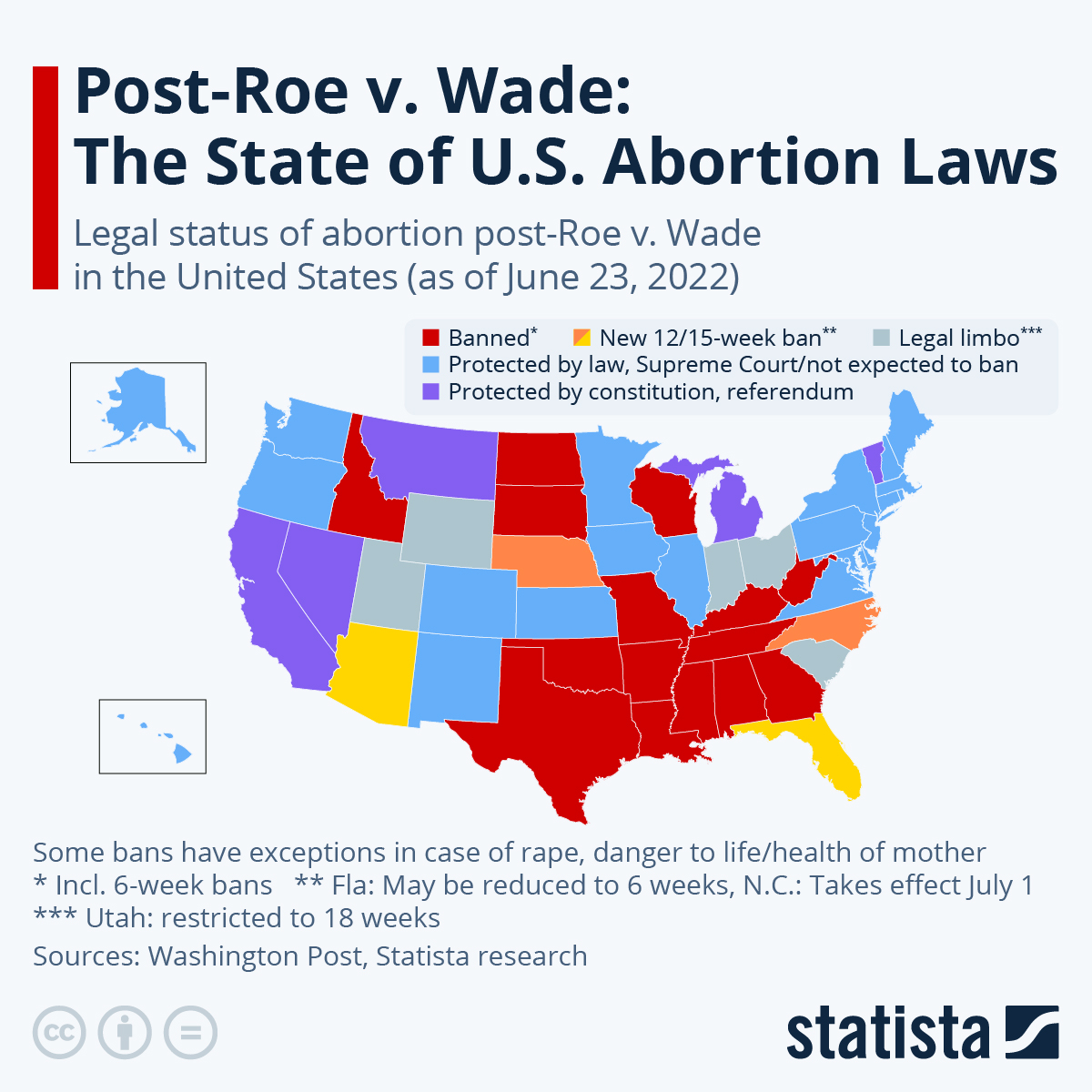The Kansas referendum will be followed up by several more abortion ballot measures in other states in the 2022 midterms in November. One more high-stakes referendum will likely take place in Michigan. Other than in Kansas, where the Republican-led legislature put the amendment on the ballot, a citizens' initiative is responsible for the measure in Michigan. As of July 11, abortion proponents in the state had already collected almost double the amount of signatures needed for bringing a constitutional amendment in favor of abortion to a vote. The measure has not yet been certified in the state whose abortion rules have been in legal limbo following the Roe v. Wade Supreme Court decision. In a third state that like Kansas and Michigan has a Republican-majority legislature and a Democratic governor - Pennsylvania -, a referendum could happen in 2023. Similar to the Kansas ballot question, Republican lawmakers in Pennsylvania are attempting to specify that there is no constitutional right to abortion in their state. Kentucky is also voting on such a measure in November with the difference that the state has already banned abortions.
State constitutions protecting abortion rights like in the case of Kansas - and potentially Michigan - are actually quite rare in the U.S. Most states that have protections for abortion rights have enshrined them in state laws which are more easily overturned than constitutional amendments. For this reason, two more pro-choice states - California and Vermont - are looking to amend their constitutions in November via the ballot box to include more secure abortion protections.
Since the overturning of Roe v. Wade on June 24, abortions have become illegal in 10 U.S. states due to trigger laws and pre-Roe statutes that were still on the books. Two more trigger laws will come into effect in late August in Idaho and Tennessee and two state legislatures - in Indiana and West Virginia - are currently working on banning abortion. Abortion bans in Utah, North Dakota and Wyoming have been blocked by judges. The Biden administration has meanwhile singled out the Idaho trigger law for a lawsuit, begging the question from other states if their bans could be subject to scrutiny too.
Bans on abortions after six weeks of gestation came into effect in Ohio, Tennessee and South Carolina, while a 15-week ban is now active in Florida. All four states are also expected to try and pass even harsher restrictions.
Despite being Republican-led Iowa and Nebraska have not moved immediately or are not expected to be able to ban abortions in the short term. New Mexico remains the only Democratic-led state that has not moved to codify abortion. The procedure also remains unprotected by state laws or constitutions in Virginia, North Carolina and Pennsylvania, which have split governments at the moment.

No comments:
Post a Comment